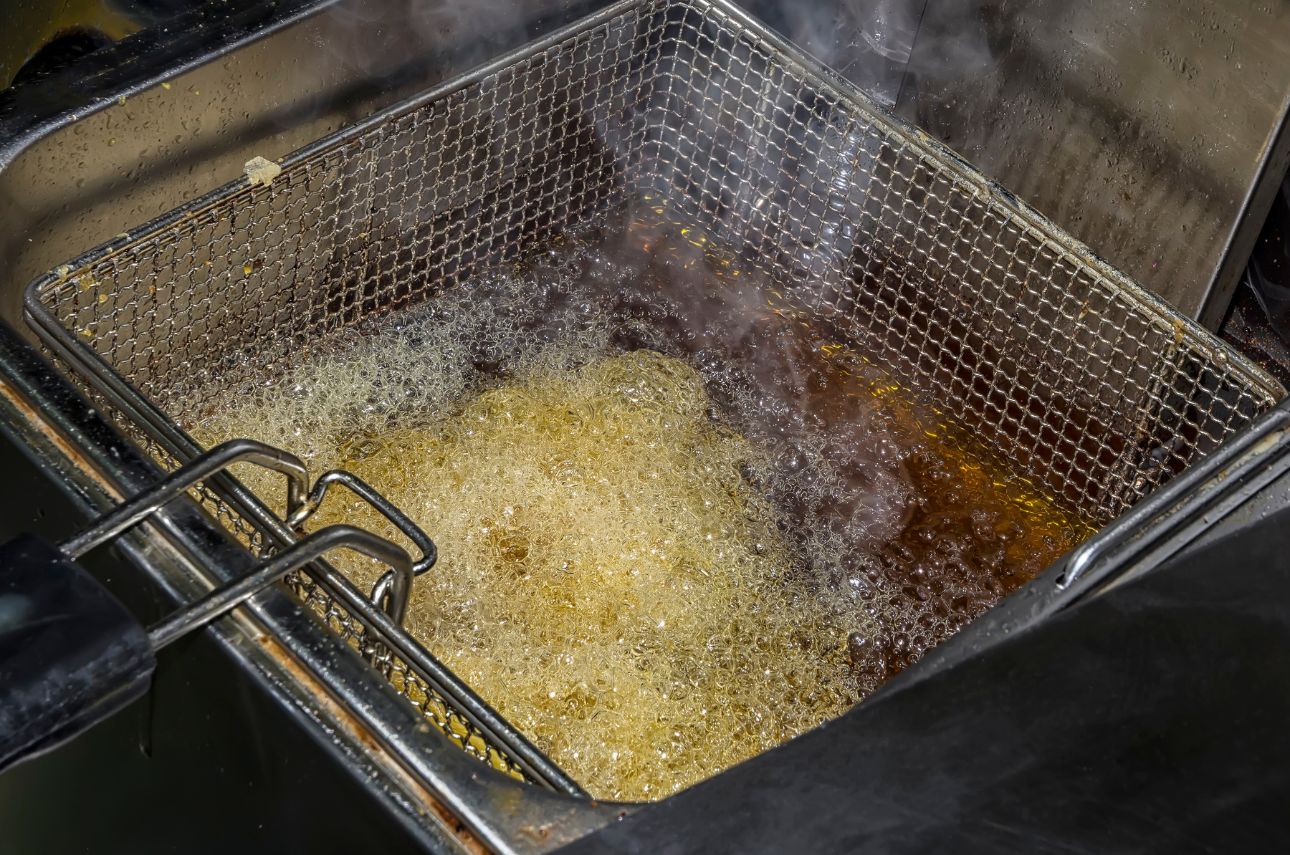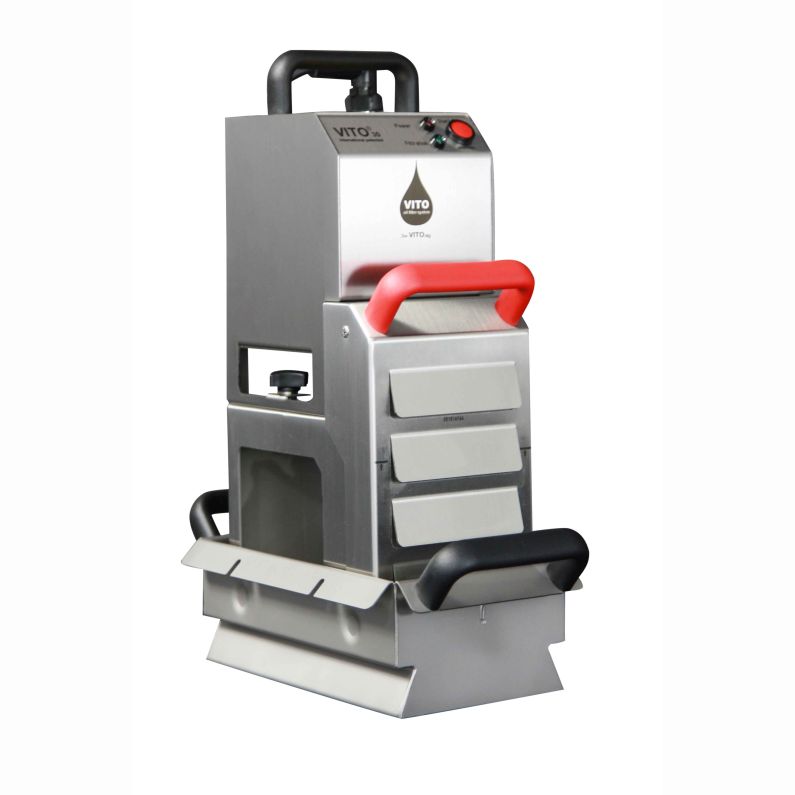16 May 2024
Oil Filtration 101: Keeping Your Cooking Oil Fresh and Your Kitchen Running Smoothly
Cooking oil plays a pivotal role in commercial kitchens, especially fast food and takeaway establishments, influencing everything from food taste to kitchen efficiency. However, maintaining the quality of cooking oil can be challenging. That’s where oil filtration comes in - a crucial yet often overlooked aspect of restaurant management.
Whether you’re a professional chef, restaurant owner, or food enthusiast, understanding the ins and outs of oil filtration can transform your kitchen operations.

The Science Behind Oil Filtration
Oil degradation is inevitable in any kitchen — exposure to air, heat, and food particles accelerates this process. However, proper oil filtration can mitigate these effects, preserving oil quality for longer periods. Oil filtration works by removing food particles and other impurities, which if left unchecked, can spoil the taste and quality of your food. This not only ensures that dishes consistently taste great but also maintains the integrity of your cooking medium.
Types of Oil Filtration Systems
Among the plethora of filtration systems, Vito cooking oil filtration systems, available through Hostservice in New Zealand, stand out due to their efficiency and ease of use. Here’s a look at various systems:
- Filter Machines: These automated systems, like the ones offered by Vito, pump oil through a filter, removing particles and impurities effortlessly. They're ideal for busy kitchens looking for convenience and effectiveness.

- Manual Filtration Methods: This includes using a mesh screen or cloth to filter oil. It's labour-intensive and less effective at removing very fine particles.
The Vito cooking oil filtration systems shine for commercial operations, offering an optimal balance between convenience and thoroughness. Their ability to significantly extend the oil's usable life makes them a cost-efficient and environmentally-friendly choice.
Best Practices for Oil Filtration
Achieving optimal results requires more than just having the right equipment; you need to follow best practices diligently:
- Filter Regularly: Don't wait for oil to appear dirty. Regular filtration after a certain number of uses can maintain quality without affecting kitchen operations.
- Monitor Oil Quality: Use digital testers to monitor the quality of your oil, ensuring it meets food safety standards. Digital testers measure the TPM (total polar material) of the oil. You can learn more about this here.
- Follow Manufacturer Instructions: Each system, especially sophisticated ones like Vito’s, comes with detailed guidelines. For optimal effectiveness, adhere to these instructions carefully.
Benefits of Proper Oil Filtration
In commercial kitchens, the benefits of implementing a robust oil filtration system are manifold. Proper filtration not only ensures the longevity of cooking oil, thereby reducing operational costs but also significantly improves the quality and consistency of the food served. This not only meets the high standards of culinary excellence but also upholds health and safety regulations, enhancing the dining experience for customers and fostering a positive reputation for the establishment.
Here are three primary benefits of oil filtration in commercial kitchens:
- Improved Taste and Quality: Cleaner oil means tastier food, enhancing your establishment's reputation.
- Cost Savings and Environmental Impact: Extending oil life significantly reduces the need for fresh oil, cutting down costs and contributing to sustainability efforts.
- Enhanced Kitchen Safety and Efficiency: Clean oil is less prone to cause accidents, like fires, making your kitchen a safer place to work.
Conclusion
Investing the time to understand and implement effective oil filtration methods, such as the Vito cooking oil filtration system, can revolutionise how your kitchen operates. Not only does it promise a superior dining experience for your customers, but it also marks a step forward in your sustainability and efficiency efforts.
Remember, every drop of cooking oil in your kitchen holds the potential to either elevate or diminish the culinary experience. By adopting industry-leading oil filtration practices, you take control of this variable, ensuring your kitchen continues to produce exquisite dishes that keep customers coming back.
Cooking Oil Filtration FAQs
How often should I filter my cooking oil?
This varies based on usage and the type of food being cooked, but as a rule of thumb, after every 8-10 hours of cooking time is a good practice.
Can oil filtration systems be used on any type of cooking oil?
Yes, most oil filtration systems, including Vito’s, are versatile and can be used with various types of cooking oils.
What’s the ROI on investing in a Vito filtration system?
While initial costs may seem high, the savings on oil, combined with improved food quality and kitchen efficiency, typically result in a quick return on investment.